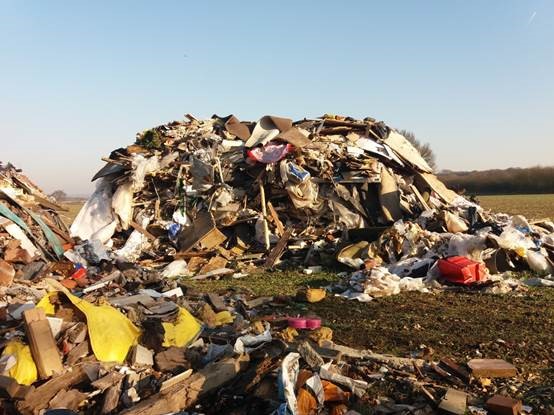Fly-tipping in the countryside – a danger to livestock and the environment – has reached epidemic proportions and must be stopped, says the NFU.
At the Keep Britain Tidy conference, farmers and landowners outlined the way the UK’s countryside was blighted and explained the burden fly-tipping put on them. The NFU says that two thirds of farms are affected. Last year, there were 900,000 incidents of fly-tipping across England – a 5% increase from the previous year.
With rural tourism contributing £130m to the nation’s economy (2015-16) the NFU says more must be done to protect the countryside from fly-tipping and more action taken by local authorities and police to help farmers battling this issue. Under current rules, farmers and landowners are left facing hefty bills to remove rubbish dumped illegally on their land.
The NFU calls for:
- Local authorities and the police assisting landowners in the clean-up and reporting of fly-tipped waste
- NFU wants all parties (Local authorities/Police/land owners/The Environment Agency) to work together on the issue which means prevention, clean up and prosecution.
- It should not be the sole responsibility of the landowner to deal with this crime and landowners are currently saddled with the cost of removing fly tipped waste.
Speaking at the Keep Britain Tidy conference, NFU Environment Forum member Phil Jarvis said: “The rubbish can be costly and time consuming for farmers to remove, it’s dangerous to human health, harmful to wildlife and livestock and in some cases, fly-tipped waste pollutes watercourses and contaminates land.
“While farmers and landowners do all they can to prevent fly-tippers, such as installing gates, barriers and warning signs and installing security cameras and lighting, in many cases deterrents do not work. These fly-tippers are people intent on breaking the law and they think nothing of cutting padlocks, breaking gates and smashing cameras.
“We want to see more communication between local authorities, police forces and the Environment Agency.”


